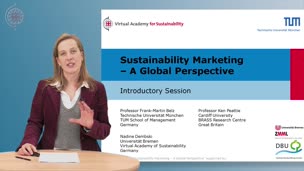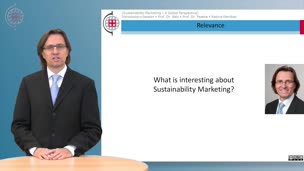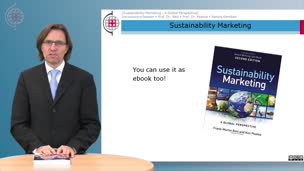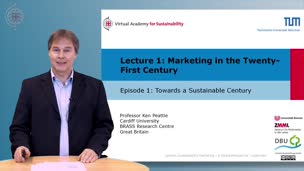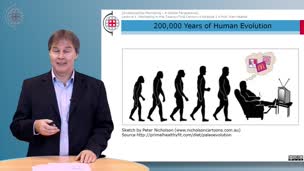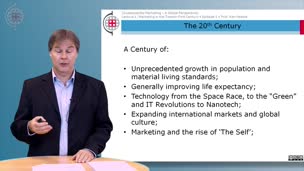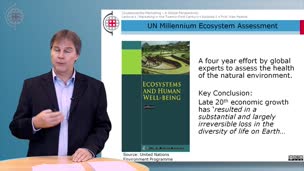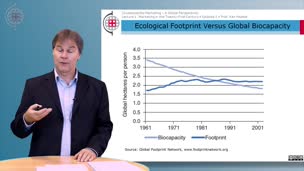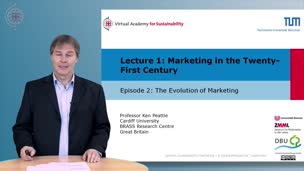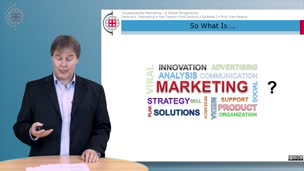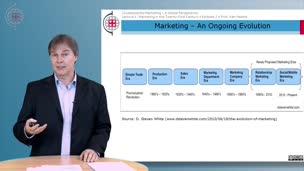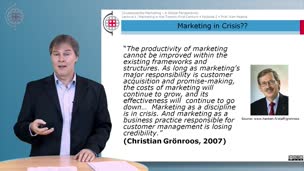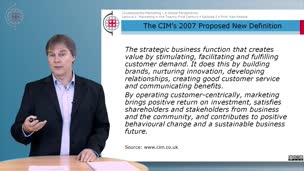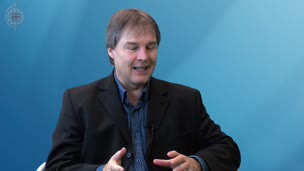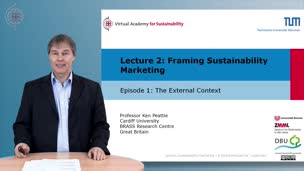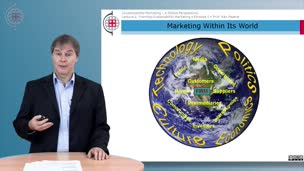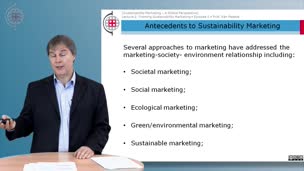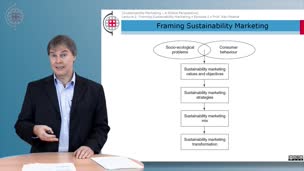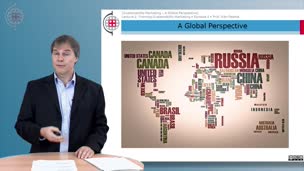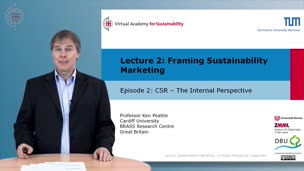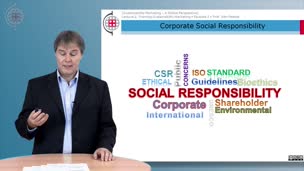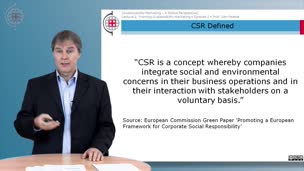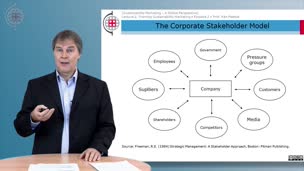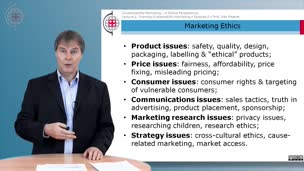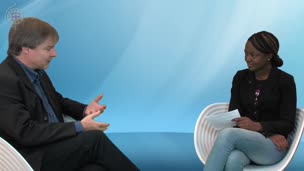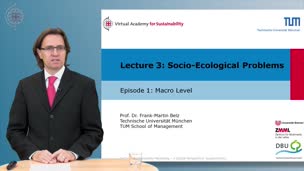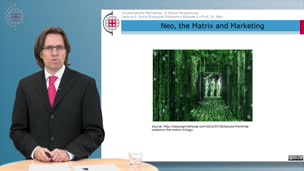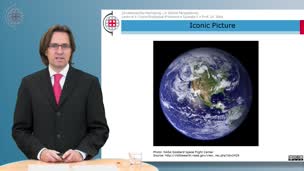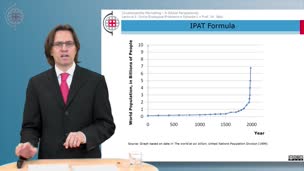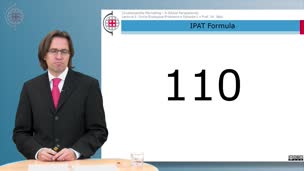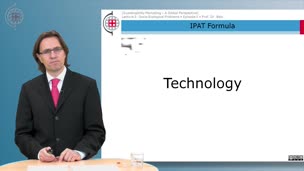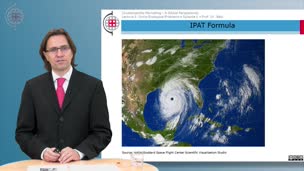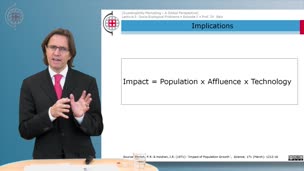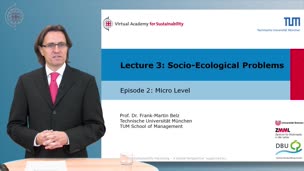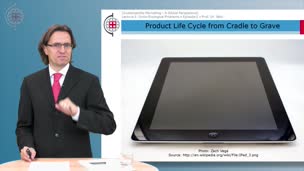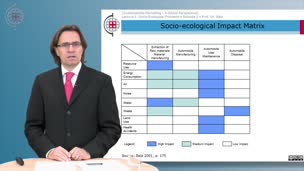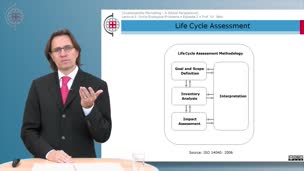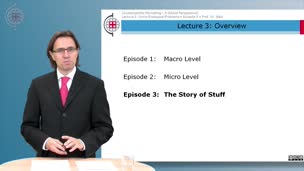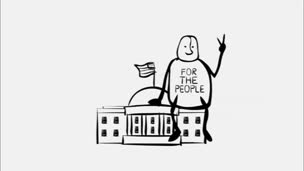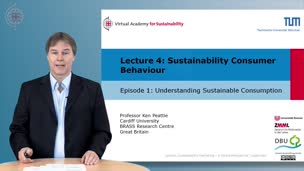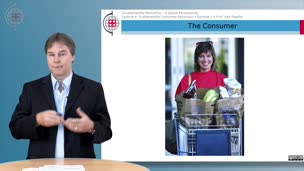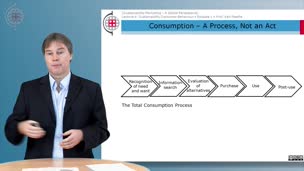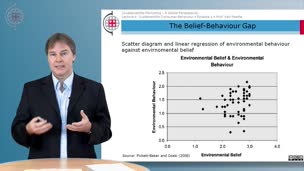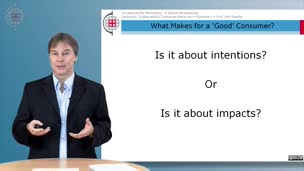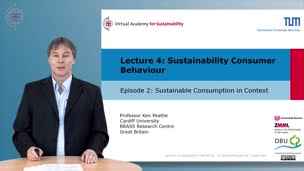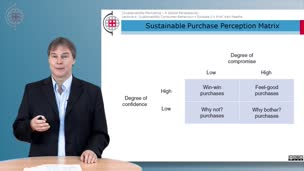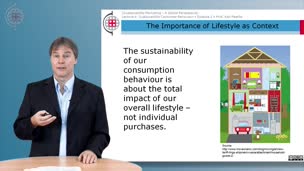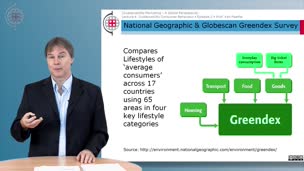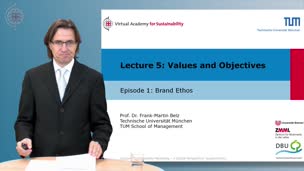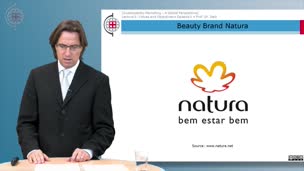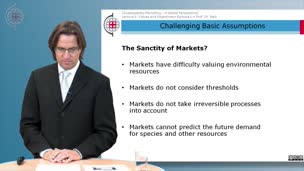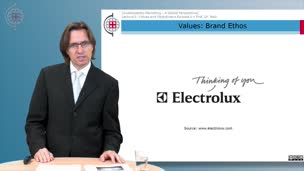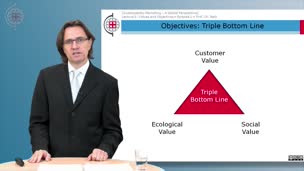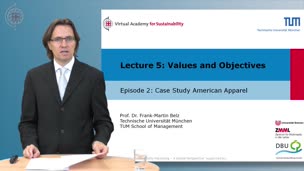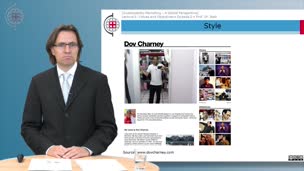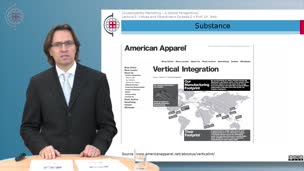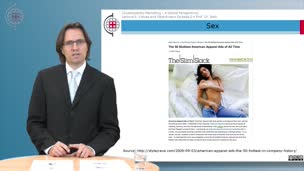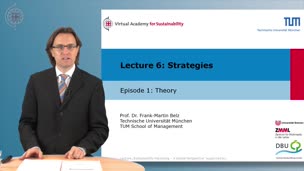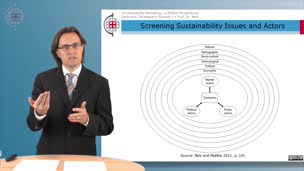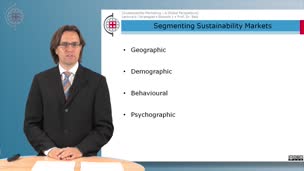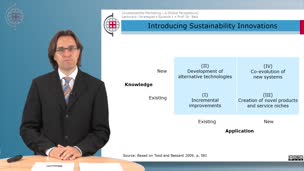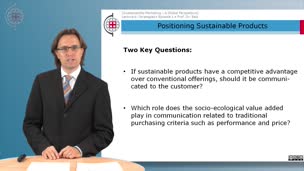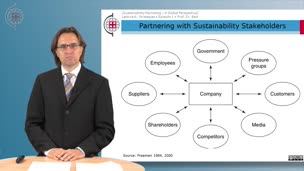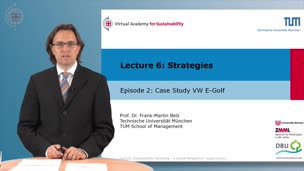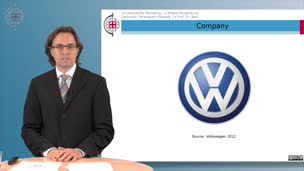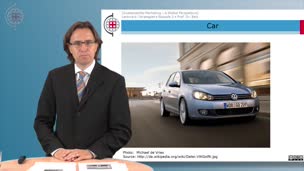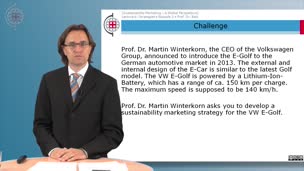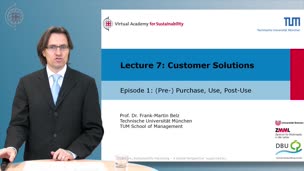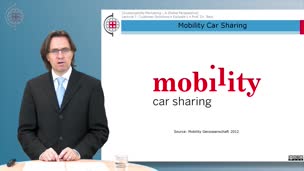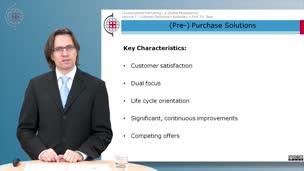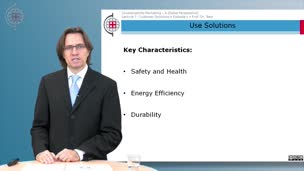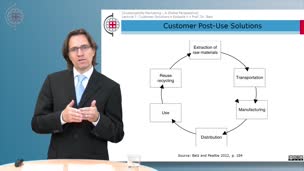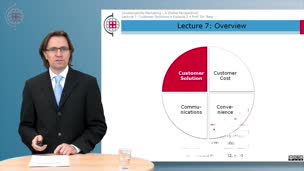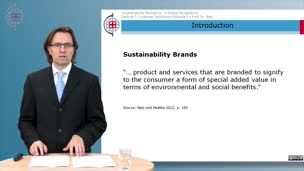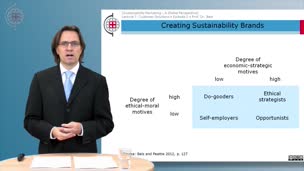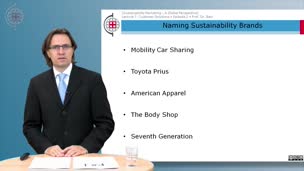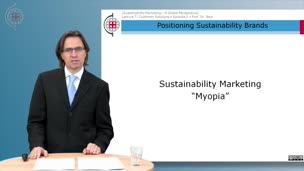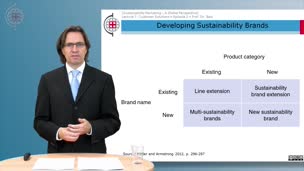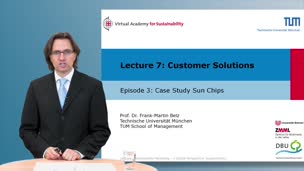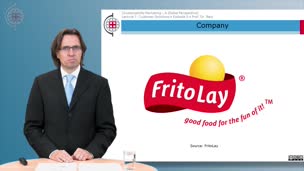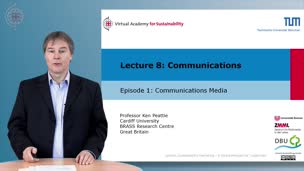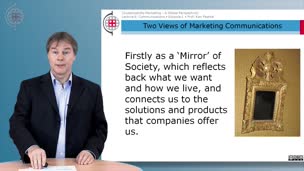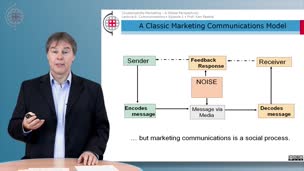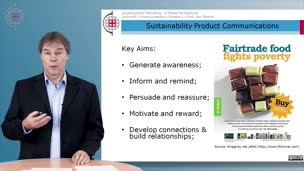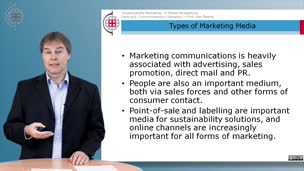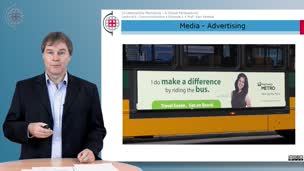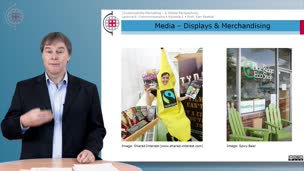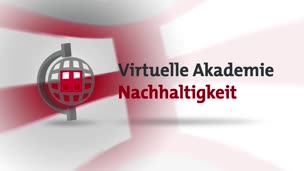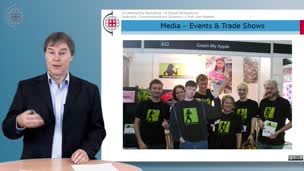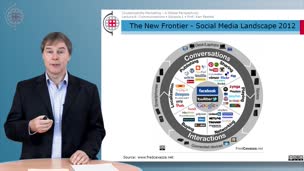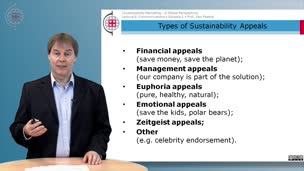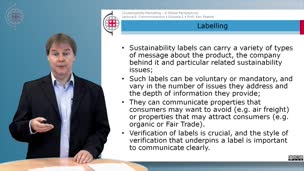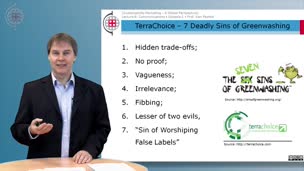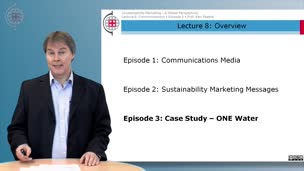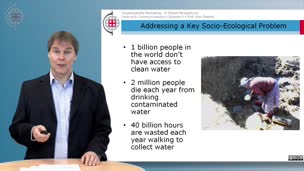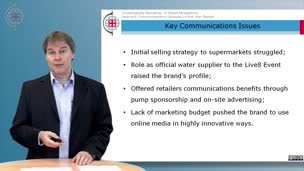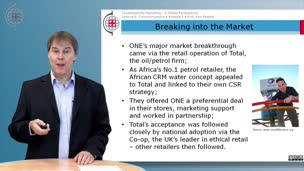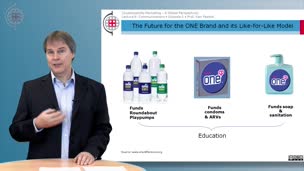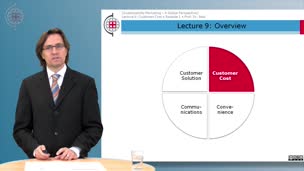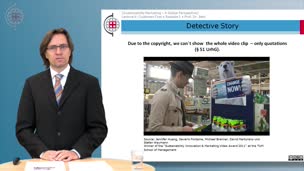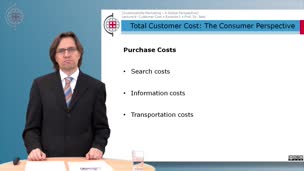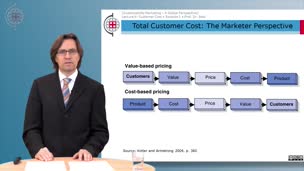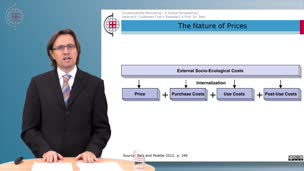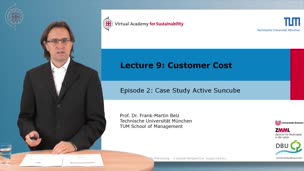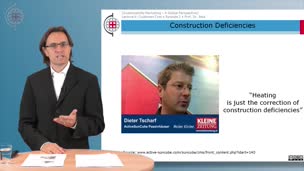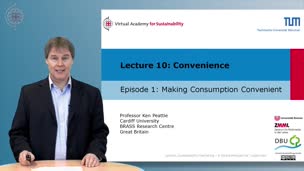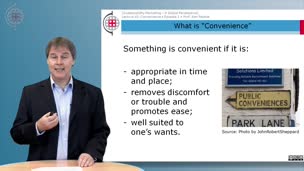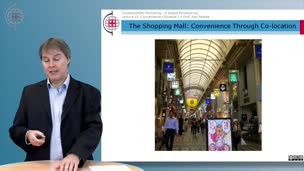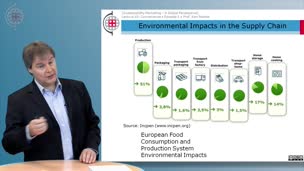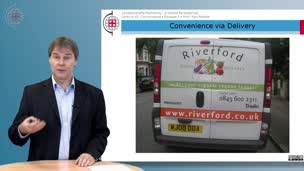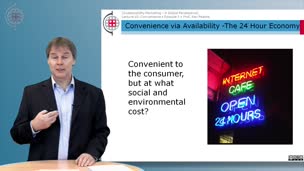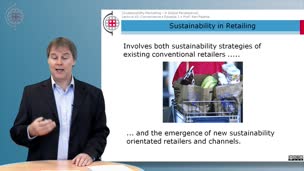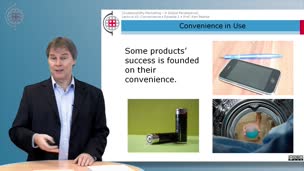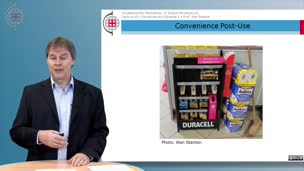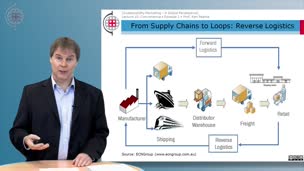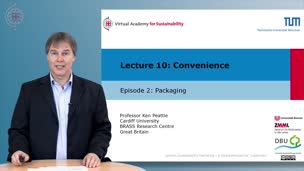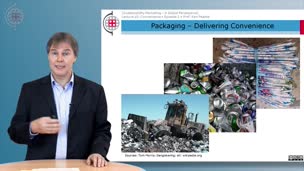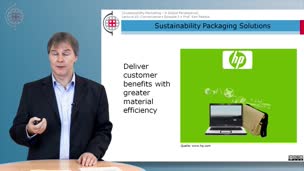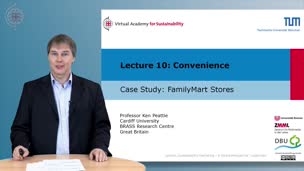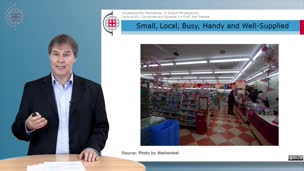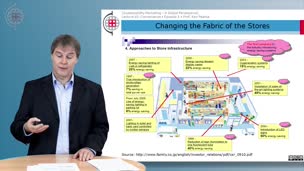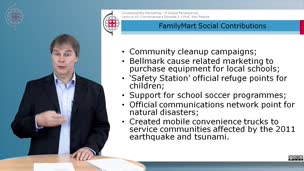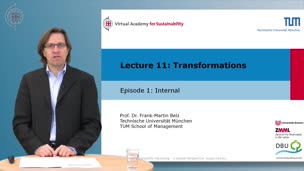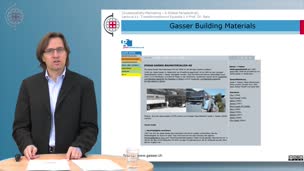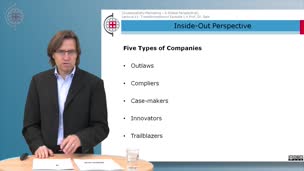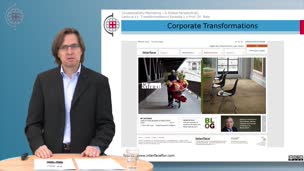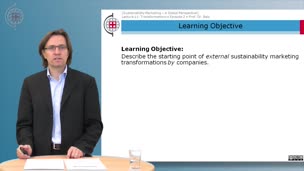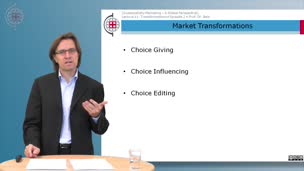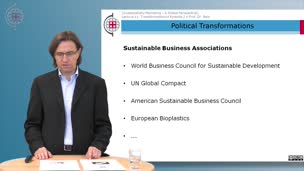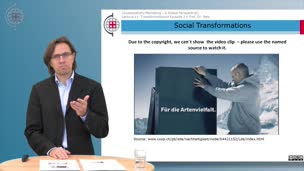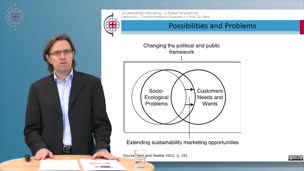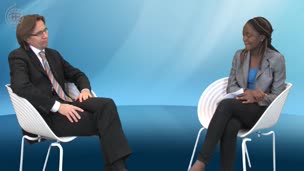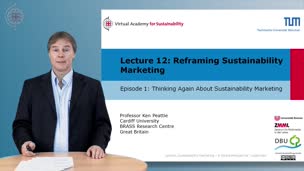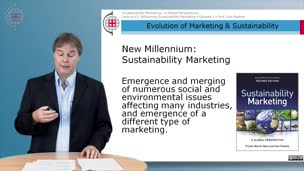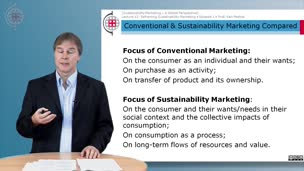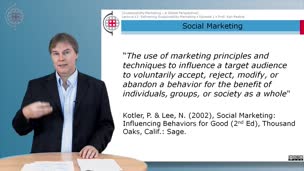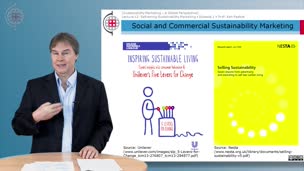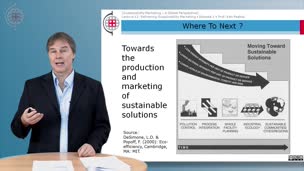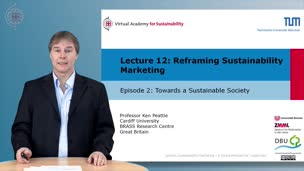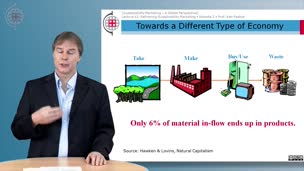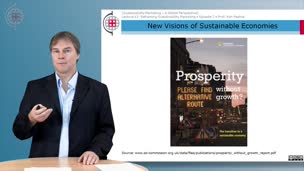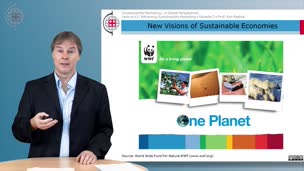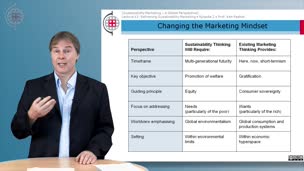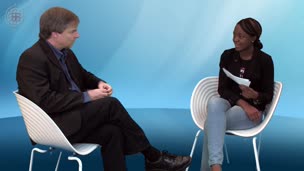9.1.5 The Nature of Prices
Datum der Aufnahme: 31/01/2022
Angesehen: 589
mal
Chapter 9: Customer Cost - Lesson 1: Theory
Chapter 9: Customer Cost - Lesson 1: Theory
Anhänge
Es gibt keine Anhänge
Video teilen
Quellenangaben
Videos der Veranstaltung
0.2.1 Welcome to this course!
Chapter 0: Organizational Matters - Lesson 2: Welcome to this course
31/01/2022
0.2.2 Why Sustainability Marketing?
Chapter 0: Organizational Matters - Lesson 2: Welcome to this course
31/01/2022
0.2.3 How do you work in this course?
Chapter 0: Organizational Matters - Lesson 2: Welcome to this course
31/01/2022
1.1.1 Overview, Learning Outcomes and Structure of the Lesson
Chapter 1: Marketing in the Twenty-First Century - Lesson 1: Towards a Sustainable Century
31/01/2022
1.1.2 How did we get here?
Chapter 1: Marketing in the Twenty-First Century - Lesson 1: Towards a Sustainable Century
31/01/2022
1.1.3 The Twentieth Century – Marketing’s Century
Chapter 1: Marketing in the Twenty-First Century - Lesson 1: Towards a Sustainable Century
31/01/2022
1.1.4 An Ecosystem’s and Wellbeing Perspective
Chapter 1: Marketing in the Twenty-First Century - Lesson 1: Towards a Sustainable Century
31/01/2022
1.1.5 Sustainable Development
Chapter 1: Marketing in the Twenty-First Century - Lesson 1: Towards a Sustainable Century
31/01/2022
1.2.1 Overview, Learning Outcomes and Structure of the Lesson
Chapter 1: Marketing in the Twenty-First Century - Lesson 2: Marketing in the Twenty-First Century
1/02/2022
1.2.2 Marketing Defined
Chapter 1: Marketing in the Twenty-First Century - Lesson 2: Marketing in the Twenty-First Century
1/02/2022
1.2.3 Marketing’s Evolution and Key Components
Chapter 1: Marketing in the Twenty-First Century - Lesson 2: Marketing in the Twenty-First Century
1/02/2022
1.2.4 Marketing in Crisis
Chapter 1: Marketing in the Twenty-First Century - Lesson 2: Marketing in the Twenty-First Century
1/02/2022
1.2.5 Sustainability and the Marketing of the Future
Chapter 1: Marketing in the Twenty-First Century - Lesson 2: Marketing in the Twenty-First Century
1/02/2022
2.1.1 Overview, Learning Outcomes and Structure of the Lesson
Chapter 2: Framing Sustainability Marketing - Lesson 1: The External Context
31/01/2022
2.1.2 Marketing in its Social Context
Chapter 2: Framing Sustainability Marketing - Lesson 1: The External Context
31/01/2022
2.1.3 Antecedents of Sustainability Marketing
Chapter 2: Framing Sustainability Marketing - Lesson 1: The External Context
31/01/2022
2.1.4 Elements of Sustainability Marketing
Chapter 2: Framing Sustainability Marketing - Lesson 1: The External Context
31/01/2022
2.1.5 A Global Context
Chapter 2: Framing Sustainability Marketing - Lesson 1: The External Context
31/01/2022
2.2.1 Overview, Learning Outcomes and Structure of the Lesson
Chapter 2: Framing Sustainability Marketing - Lesson 2: CSR - The Internal Context
31/01/2022
2.2.2 Corporate Social Responsibility
Chapter 2: Framing Sustainability Marketing - Lesson 2: CSR - The Internal Context
31/01/2022
2.2.3 Corporate (Social) Responsibility Defined
Chapter 2: Framing Sustainability Marketing - Lesson 2: CSR - The Internal Context
31/01/2022
2.2.4 Approaches to Corporate Social Responsibility
Chapter 2: Framing Sustainability Marketing - Lesson 2: CSR - The Internal Context
31/01/2022
2.2.5 Marketing Ethics
Chapter 2: Framing Sustainability Marketing - Lesson 2: CSR - The Internal Context
31/01/2022
3.1.1 Overview, Learning Outcomes and Structure of the Lesson
Chapter 3: Socio-Ecological Problems - Lesson 1: Macro Level
31/01/2022
3.1.4 IPAT Formula: Population
Chapter 3: Socio-Ecological Problems - Lesson 1: Macro Level
31/01/2022
3.1.5 IPAT Formula: Affluence
Chapter 3: Socio-Ecological Problems - Lesson 1: Macro Level
31/01/2022
3.1.6 IPAT Formula: Technology
Chapter 3: Socio-Ecological Problems - Lesson 1: Macro Level
31/01/2022
3.2.1 Overview, Learning Outcomes and Structure of the Lesson
Chapter 3: Socio-Ecological Problems - Lesson 2: Micro Level
31/01/2022
3.2.2 Product Life Cycle from Cradle to Grave
Chapter 3: Socio-Ecological Problems - Lesson 2: Micro Level
31/01/2022
3.2.3 Socio-ecological Impact Matrix
Chapter 3: Socio-Ecological Problems - Lesson 2: Micro Level
31/01/2022
3.2.4 Life Cycle Assessment (LCA)
Chapter 3: Socio-Ecological Problems - Lesson 2: Micro Level
31/01/2022
3.3.1 Overview, Learning Outcomes and Structure of the Lesson
Chapter 3: Socio-Ecological Problems - Lesson 3: The Story of Stuff
31/01/2022
3.3.2 The Story of Stuff with Annie Leonard
Chapter 3: Socio-Ecological Problems - Lesson 3: The Story of Stuff
31/01/2022
4.1.1 Overview, Learning Outcomes and Structure of the Lesson
Chapter 4: Sustainability Consumer Behavior - Lesson 1: Understanding Sustainable Consumption
31/01/2022
4.1.2 The Consumer
Chapter 4: Sustainability Consumer Behavior - Lesson 1: Understanding Sustainable Consumption
31/01/2022
4.1.3 The Consumption Process
Chapter 4: Sustainability Consumer Behavior - Lesson 1: Understanding Sustainable Consumption
31/01/2022
4.1.4 Influences on Consumption
Chapter 4: Sustainability Consumer Behavior - Lesson 1: Understanding Sustainable Consumption
31/01/2022
4.1.5 Challenges in identifying and understanding the Green Consumer
Chapter 4: Sustainability Consumer Behavior - Lesson 1: Understanding Sustainable Consumption
31/01/2022
4.2.1 Overview, Learning Outcomes and Structure of the Lesson
Chapter 4: Sustainability Consumer Behavior - Lesson 2: Sustainable Consumption on Context
31/01/2022
4.2.2 Purchases as Context
Chapter 4: Sustainability Consumer Behavior - Lesson 2: Sustainable Consumption on Context
31/01/2022
4.2.3 Lifestyles and Households as Context
Chapter 4: Sustainability Consumer Behavior - Lesson 2: Sustainable Consumption on Context
31/01/2022
4.2.4 International Context and Comparisons – the Greendex survey
Chapter 4: Sustainability Consumer Behavior - Lesson 2: Sustainable Consumption on Context
31/01/2022
5.1.1 Overview, Learning Outcomes and Structure of the Lesson
Chapter 5: Values and Objectives - Lesson 1: Brand Ethos
31/01/2022
5.1.3 Challenging Basic Assumptions
Chapter 5: Values and Objectives - Lesson 1: Brand Ethos
31/01/2022
5.1.5 Objectives: Triple Bottom Line
Chapter 5: Values and Objectives - Lesson 1: Brand Ethos
31/01/2022
5.2.1 Overview, Learning Outcomes and Structure of the Lesson
Chapter 5: Values and Objectives - Lesson 2: Case Study American Apparel
31/01/2022
6.1.1 Overview, Learning Outcomes and Structure of the Lesson
Chapter 6: Strategies - Lesson 1: Theory
31/01/2022
6.1.2 Screening Sustainability Issues and Actors
Chapter 6: Strategies - Lesson 1: Theory
31/01/2022
6.1.6 Partnering with Sustainability Stakeholders
Chapter 6: Strategies - Lesson 1: Theory
31/01/2022
6.2.1 Overview, Learning Outcomes and Structure of the Lesson
Chapter 6: Strategies - Lesson 2: Case Study VW E-Golf
31/01/2022
6.2.4 The challenge and its key questions
Chapter 6: Strategies - Lesson 2: Case Study VW E-Golf
31/01/2022
7.1.1 Overview, Learning Outcomes and Structure of the Lesson
Chapter 7: Customer Solutions - Lesson 1: (Pre-)Purchase, Use, Post-Use
31/01/2022
7.1.2 Mobility Car Sharing
Chapter 7: Customer Solutions - Lesson 1: (Pre-)Purchase, Use, Post-Use
31/01/2022
7.1.3 Customer (Pre-)Purchase Solutions
Chapter 7: Customer Solutions - Lesson 1: (Pre-)Purchase, Use, Post-Use
31/01/2022
7.1.4 Customer Use Solutions
Chapter 7: Customer Solutions - Lesson 1: (Pre-)Purchase, Use, Post-Use
31/01/2022
7.1.5 Customer Post-Use Solutions
Chapter 7: Customer Solutions - Lesson 1: (Pre-)Purchase, Use, Post-Use
31/01/2022
7.2.1 Overview, Learning Outcomes and Structure of the Lesson
Chapter 7: Customer Solutions - Lesson 2: Sustainability Branding
31/01/2022
7.2.3 Creating Sustainability Brands
Chapter 7: Customer Solutions - Lesson 2: Sustainability Branding
31/01/2022
7.2.4 Naming Sustainability Brands
Chapter 7: Customer Solutions - Lesson 2: Sustainability Branding
31/01/2022
7.2.5 Positioning Sustainability Brands
Chapter 7: Customer Solutions - Lesson 2: Sustainability Branding
31/01/2022
7.2.6 Developing Sustainability Brands
Chapter 7: Customer Solutions - Lesson 2: Sustainability Branding
31/01/2022
7.3.1 Overview, Learning Outcomes and Structure of the Lesson
Chapter 7: Customer Solutions - Lesson 3: Case Study Sun Chips
31/01/2022
8.1.1 Overview, Learning Outcomes and Structure of the Lesson
Chapter 8: Communications - Lesson 1: Communications Media
31/01/2022
8.1.2 Contrasting Views on Marketing Communications
Chapter 8: Communications - Lesson 1: Communications Media
31/01/2022
8.1.3 The Marketing Communications Process
Chapter 8: Communications - Lesson 1: Communications Media
31/01/2022
8.1.4 Marketing Communications Aims
Chapter 8: Communications - Lesson 1: Communications Media
31/01/2022
8.1.5 Marketing Media and Sustainability Marketing
Chapter 8: Communications - Lesson 1: Communications Media
31/01/2022
8.1.7 Displays & Merchandising
Chapter 8: Communications - Lesson 1: Communications Media
31/01/2022
8.1.10 The New Frontier – Social Media Landscape 2012
Chapter 8: Communications - Lesson 1: Communications Media
31/01/2022
8.2.1 Overview, Learning Outcomes and Structure of the Lesson
Chapter 8: Communications - Lesson 2: Sustainability Marketing Message
31/01/2022
8.2.2 Getting the Message Right – Types of Sustainability Appeals
Chapter 8: Communications - Lesson 2: Sustainability Marketing Message
31/01/2022
8.2.4 The Dangers of Greenwashing
Chapter 8: Communications - Lesson 2: Sustainability Marketing Message
31/01/2022
8.3.1 Overview, Learning Outcomes and Structure of the Lesson
Chapter 8: Communications - Lesson 3: Case Study – ONE Water
31/01/2022
8.3.2 The ONE Water Like-for-Like-Model
Chapter 8: Communications - Lesson 3: Case Study – ONE Water
31/01/2022
8.3.3 Marketing Communications Issues
Chapter 8: Communications - Lesson 3: Case Study – ONE Water
31/01/2022
8.3.4 Video – ONE and Total in Africa
Chapter 8: Communications - Lesson 3: Case Study – ONE Water
31/01/2022
8.3.5 The Future for the Brand and the Business Model
Chapter 8: Communications - Lesson 3: Case Study – ONE Water
31/01/2022
9.1.1 Overview, Learning Outcomes and Structure of the Lesson
Chapter 9: Customer Cost - Lesson 1: Theory
31/01/2022
9.1.3 Total Customer Cost: The Consumer Perspective
Chapter 9: Customer Cost - Lesson 1: Theory
31/01/2022
9.1.4 Total Customer Cost: The Marketer Perspective
Chapter 9: Customer Cost - Lesson 1: Theory
31/01/2022
9.2.1 Overview, Learning Outcomes and Structure of the Lesson
Chapter 9: Customer Cost - Lesson 2: Case Study Active Suncube
31/01/2022
10.1.1 Overview, Learning Outcomes and Structure of the Lesson
Chapter 10: Convenience - Lesson 1: Making Consumption Convenient
31/01/2022
10.1.2 Dimensions of Convenience
Chapter 10: Convenience - Lesson 1: Making Consumption Convenient
31/01/2022
10.1.3 Convenience throughout the Consumption Process
Chapter 10: Convenience - Lesson 1: Making Consumption Convenient
31/01/2022
10.1.4 Convenience Through Co-Location Impacts in the Supply Chain
Chapter 10: Convenience - Lesson 1: Making Consumption Convenient
31/01/2022
10.1.5 Convenience via Delivery
Chapter 10: Convenience - Lesson 1: Making Consumption Convenient
31/01/2022
10.1.6 Convenience via Availability
Chapter 10: Convenience - Lesson 1: Making Consumption Convenient
31/01/2022
10.1.8 During product use
Chapter 10: Convenience - Lesson 1: Making Consumption Convenient
31/01/2022
10.1.9 Post-use for recycling, reuse or disposal
Chapter 10: Convenience - Lesson 1: Making Consumption Convenient
31/01/2022
10.1.10 From Supply Chains to Supply Loops
Chapter 10: Convenience - Lesson 1: Making Consumption Convenient
31/01/2022
10.2.1 Overview, Learning Outcomes and Structure of the Lesson
Chapter 10: Convenience - Lesson 2: Packaging
31/01/2022
10.3.1 Overview, Learning Outcomes and Structure of the Lesson
Chapter 10: Convenience - Lesson 3: Case Study: FamilyMart Story
1/02/2022
10.3.2 Introduction to Family Mart Convenience Stores
Chapter 10: Convenience - Lesson 3: Case Study: FamilyMart Story
1/02/2022
10.3.3 Key FamilyMart Sustainability Strategies
Chapter 10: Convenience - Lesson 3: Case Study: FamilyMart Story
1/02/2022
10.3.4 Becoming an Important Place in Customer’s Lives
Chapter 10: Convenience - Lesson 3: Case Study: FamilyMart Story
1/02/2022
11.1.1 Overview, Learning Outcomes and Structure of the Lesson
Chapter 11: Transformations - Lesson 1: Internal
1/02/2022
11.2.1 Overview, Learning Outcomes and Structure of the Lesson
Chapter 11: Transformations - Lesson 2: External
1/02/2022
12.1.1 Overview, Learning Outcomes and Structure of the Lesson
Chapter 12: Reframing Sustainability Marketing - Lesson 1: Thinking Again About Sustainability Marketing
1/02/2022
12.1.2 The Evolution of the Marketing-Sustainability Relationship
Chapter 12: Reframing Sustainability Marketing - Lesson 1: Thinking Again About Sustainability Marketing
1/02/2022
12.1.3 Sustainability Marketing – Beyond the Conventional
Chapter 12: Reframing Sustainability Marketing - Lesson 1: Thinking Again About Sustainability Marketing
1/02/2022
12.1.4 Social Marketing for Sustainability
Chapter 12: Reframing Sustainability Marketing - Lesson 1: Thinking Again About Sustainability Marketing
1/02/2022
12.1.5 Example
Chapter 12: Reframing Sustainability Marketing - Lesson 1: Thinking Again About Sustainability Marketing
1/02/2022
12.1.6 Where to Next?
Chapter 12: Reframing Sustainability Marketing - Lesson 1: Thinking Again About Sustainability Marketing
1/02/2022
12.2.1 Overview, Learning Outcomes and Structure of the Lesson
Chapter 12: Reframing Sustainability Marketing - Lesson 2: Towards a Sustainable Society
1/02/2022
12.2.2 How Do We Make Progress Towards Sustainability Marketing?
Chapter 12: Reframing Sustainability Marketing - Lesson 2: Towards a Sustainable Society
1/02/2022
12.2.3 New Visions of Sustainable Economies
Chapter 12: Reframing Sustainability Marketing - Lesson 2: Towards a Sustainable Society
1/02/2022
12.2.4 Aspects of a One Planet Economy
Chapter 12: Reframing Sustainability Marketing - Lesson 2: Towards a Sustainable Society
1/02/2022
12.2.5 Changing the Marketing Mindset
Chapter 12: Reframing Sustainability Marketing - Lesson 2: Towards a Sustainable Society
1/02/2022






